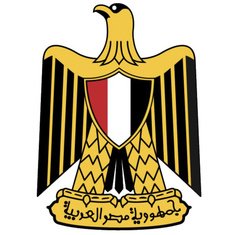|
Hint
|
Answer
|
|
Early Egyptian civilizations relied on the annual flood of this river
|
Nile River
|
|
One of the oldest writing systems in the world, invented by ancient Egyptians
|
Hieroglyphics
|
|
King accredited with unifying Upper and Lower Egypt in the 32nd century BC
|
Narmer
|
|
2686-2181 BC period of Egyptian history, consolidating absolute power of monarch
|
Old Kingdom
|
|
Prime minister, architect and physician of the above period serving under Djoser
|
Imhotep
|
|
The above period also gave birth to these giant monuments serving as kings' tombs
|
Pyramids
|
|
The largest of the above was built for this king, criticized as an oppressor by Herodotus
|
Khufu
|
|
The bodies of kings were preserved in the above monuments using this technique
|
Mummification
|
|
Mentuhotep II reunited Egypt, starting this 2055-1650 BC period of Egyptian history
|
Middle Kingdom
|
|
1650 BC invasion that ended the above historical period
|
Hyksos Invasion
|
|
Ahmose I established this 1550-1069 BC period of Egyptian history
|
New Kingdom
|
|
Title for the monarchs of the above historical period
|
Pharaoh
|
|
King of this period who built temples and attained unprecedented power for a woman
|
Hatshepsut
|
|
Son of the above, king who expanded Egypt by conquering Syria and Nubia
|
Thutmose III
|
|
King who worshipped only one god, the sun deity Aten
|
Akhenaten
|
|
Son of the above, returned to religious normalcy and died in his nineteenth year
|
Tutankhamen
|
|
Aswan site built by Ramesses II, with four statues of himself in front of the main temple
|
Abu Simbel
|
|
Egypt was invaded by this group in the End of Bronze Age Collapse
|
Sea Peoples
|
|
After conquest by Alexander in 332 BC, Egypt was controlled by this Greek general
|
Ptolemy I
|
|
This city on the coast with a great library became scholarly capital of the world
|
Alexandria
|
|
Famous structure in the above city that guides ships to harbor at night
|
Pharos
|
|
Mathematician known as Father of Geometry who wrote Elements
|
Euclid
|
|
Librarian and polymath who calculated the circumference of the Earth
|
Eratosthenes
|
|
Librarian and poet who wrote the Aetia
|
Callimachus
|
|
Greek rule ended when this ruler killed herself by poison in 30 BC, starting Roman rule
|
Cleopatra VII
|
|
St. Mark spread Christianity to Egypt, establishing this church
|
Coptic Church
|
|
Christian theologian and ascetic who authored On the First Principles
|
Origen
|
|
Empire that followed the Romans, its defeat led to Egypt's conversion to Islam
|
Byzantine Empire
|
|
Islamic caliphate following the Abassid that founded Cairo in 969
|
Fatimid Caliphate
|
|
Well-known mosque in Cairo established during this period
|
Al-Hakim Mosque
|
|
Prestigious university in Cairo established during this period
|
Al-Azhar University
|
|
Muslim hero and sultan of Egypt who captured Jerusalem in 1187
|
Saladin
|
|
Dynasty encompassing Egypt, Syria, Yemen and Palestine established by the above
|
Ayubbid Dynasty
|
|
Group of people who seized Egypt in 1250, driving away the invading Mongols
|
Mamluks
|
|
Ruler of the above who won the 1260 Battle of Ain Jalut and the Seventh Crusade
|
Baybars
|
|
Ottoman Turks under this sultan conquered Egypt in 1517
|
Selim I
|
|
July 1798 battle in which Napoleon defeated the Turks
|
Battle of the Pyramids
|
|
August 1789 battle in which the British under Nelson defeated Napoleon
|
Battle of the Nile
|
|
Albanian who gained power as Ottoman viceroy of Egypt in 1805
|
Muhammad Ali Pasha
|
|
Ferdinand de Lesseps led the construction of this project, which opened in 1869
|
Suez Canal
|
|
1879-1882 nationalist uprising that led to full British occupation
|
‘Urabi Revolt
|
|
First prime minister whose Wafd party campaigned for Egyptian independence
|
Saad Zaghloul
|
|
First king of Egypt after Egyptian independence in 1922
|
Fuad I
|
|
Second king of Egypt, ruling from 1936 to 1952
|
Farouk I
|
|
Two 1942 battles, part of WWII North African campaigns, fought on Egyptian territory
|
Battles of El Alamein
|
|
War which Egypt lost in 1948, leading the the founding of Israel
|
First Arab-Israeli War
|
|
Group whose 1952 movement toppled the monarchy
|
Free Officers
|
|
Military leader who became first president but was forced to resign in 1954
|
Mohamed Naguib
|
|
Second president, in office 1954-1970, who spread his ideals on Arab unity by radio
|
Gamal Abdel Nasser
|
|
Radio station through which the above president spread his ideals
|
Voice of the Arabs
|
|
Religious organization that the above president ordered a crackdown on
|
Muslim Brotherhood
|
|
1956 crisis that occurred after the above president nationalized a canal
|
Suez Crisis
|
|
Structure completed in 1970 using tolls collected from the above canal
|
Aswan High Dam
|
|
Egypt was defeated in this 1967 war against Israel, losing the Sinai Peninsula
|
Six-Day War
|
|
Third president, in office 1970-1981, assassinated for making peace with Israel
|
Anwar Sadat
|
|
Egypt launched assault on Israel during this 1973 war but was again defeated
|
Yom Kippur War
|
|
1978 accords establishing peace and allowing for the return of the Sinai Peninsula
|
Camp David Accords
|
|
Fourth president, in office 1981-2011, ousted during the Arab Spring
|
Hosni Mubarak
|
|
City square in Cairo where protests during the Arab Spring took place
|
Tahrir Square
|
|
Current (sixth) president who removed Mohamed Morsi from power in 2013
|
Abdel Fattah el-Sisi
|

